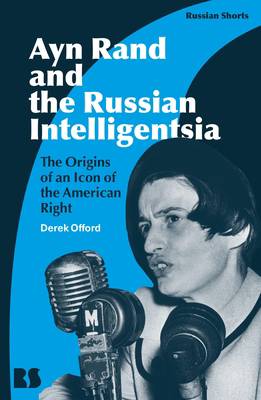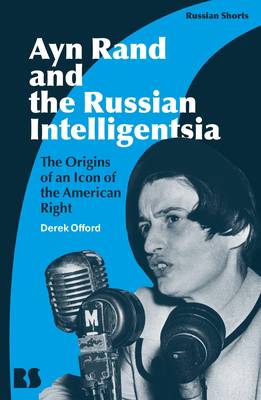
- Afhalen na 1 uur in een winkel met voorraad
- Gratis thuislevering in België vanaf € 30
- Ruim aanbod met 7 miljoen producten
- Afhalen na 1 uur in een winkel met voorraad
- Gratis thuislevering in België vanaf € 30
- Ruim aanbod met 7 miljoen producten
Omschrijving
This book examines the writings of the American novelist Ayn Rand, especially The Fountainhead (1943) and Atlas Shrugged (1957), which Rand considered her definitive statement about the need for an unregulated free market in which superior humans could fully realize themselves by living for no-one but themselves. It explores Rand's conception of American identity, which exalted individualism and capitalism, and her solution for saving the modern American nation, which she believed was losing the spirit of its 18th- and 19th-century founders and frontiersmen, having been degraded morally and economically by the rampant socialism of the mid-20th-century world.
Derek Offord crucially goes on to analyse how Rand's writings functioned as a vehicle in which she, a Russian-Jewish writer born in St Petersburg in 1905, engaged with ideas that had long animated the Russian intelligentsia. Her conception of human nature and of a utopian community capable of satisfying its needs; her reversal of conventional valuations of self-sacrifice and selfishness; her division of humans into an extraordinary minority and the ordinary mass; her comparison of competing civilizations - in all these areas, Offord argues that Rand drew on Russian debates and transposed them to a different context. Even the type of novel she writes, the novel of ideas, is informed by the polemical methods and habits of the Russian intelligentsia. The book concludes that her search for a brave new world continues to have topicality in the 21st century, with its populist critiques of liberal democracies and acrimonious debates about countries' moral, social, and economic priorities and their identities, inequalities, and social tensions.Specificaties
Betrokkenen
- Auteur(s):
- Uitgeverij:
Inhoud
- Aantal bladzijden:
- 144
- Taal:
- Engels
- Reeks:
Eigenschappen
- Productcode (EAN):
- 9781350283954
- Verschijningsdatum:
- 2/06/2022
- Uitvoering:
- Hardcover
- Formaat:
- Genaaid
- Afmetingen:
- 127 mm x 203 mm
- Gewicht:
- 272 g

Alleen bij Standaard Boekhandel
Beoordelingen
We publiceren alleen reviews die voldoen aan de voorwaarden voor reviews. Bekijk onze voorwaarden voor reviews.







